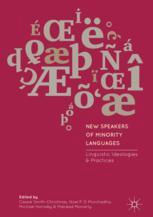

Most ebook files are in PDF format, so you can easily read them using various software such as Foxit Reader or directly on the Google Chrome browser.
Some ebook files are released by publishers in other formats such as .awz, .mobi, .epub, .fb2, etc. You may need to install specific software to read these formats on mobile/PC, such as Calibre.
Please read the tutorial at this link: https://ebookbell.com/faq
We offer FREE conversion to the popular formats you request; however, this may take some time. Therefore, right after payment, please email us, and we will try to provide the service as quickly as possible.
For some exceptional file formats or broken links (if any), please refrain from opening any disputes. Instead, email us first, and we will try to assist within a maximum of 6 hours.
EbookBell Team

4.0
46 reviewsThis book represents the first collection specifically devoted to New Speaker Studies, focusing on language ideologies and practices of speakers in a variety of minority language communities. Over thirteen chapters, it uses the new speaker lens to investigate not only linguistic issues, such as language variation and change, phonetics, morphosyntax, language acquisition, code-switching, but also sociolinguistic issues, such as legitimacy, integration, and motivation in language learning and use. Besides covering a range of languages - Basque, Breton, Galician, Giernesiei, Irish, Scottish Gaelic and Welsh - and their different sociolinguistic situations, the chapters also encompass a series of interactional settings: institutional settings, media and the home domain, as well as different contexts for becoming a new speaker of a minority language, such as by migration or through education. This collection represents an output by a lively network of researchers: it will appeal to postgraduate students, researchers and academics working in the field of sociolinguistics, applied linguistics, language policy and those working within minority language communities.